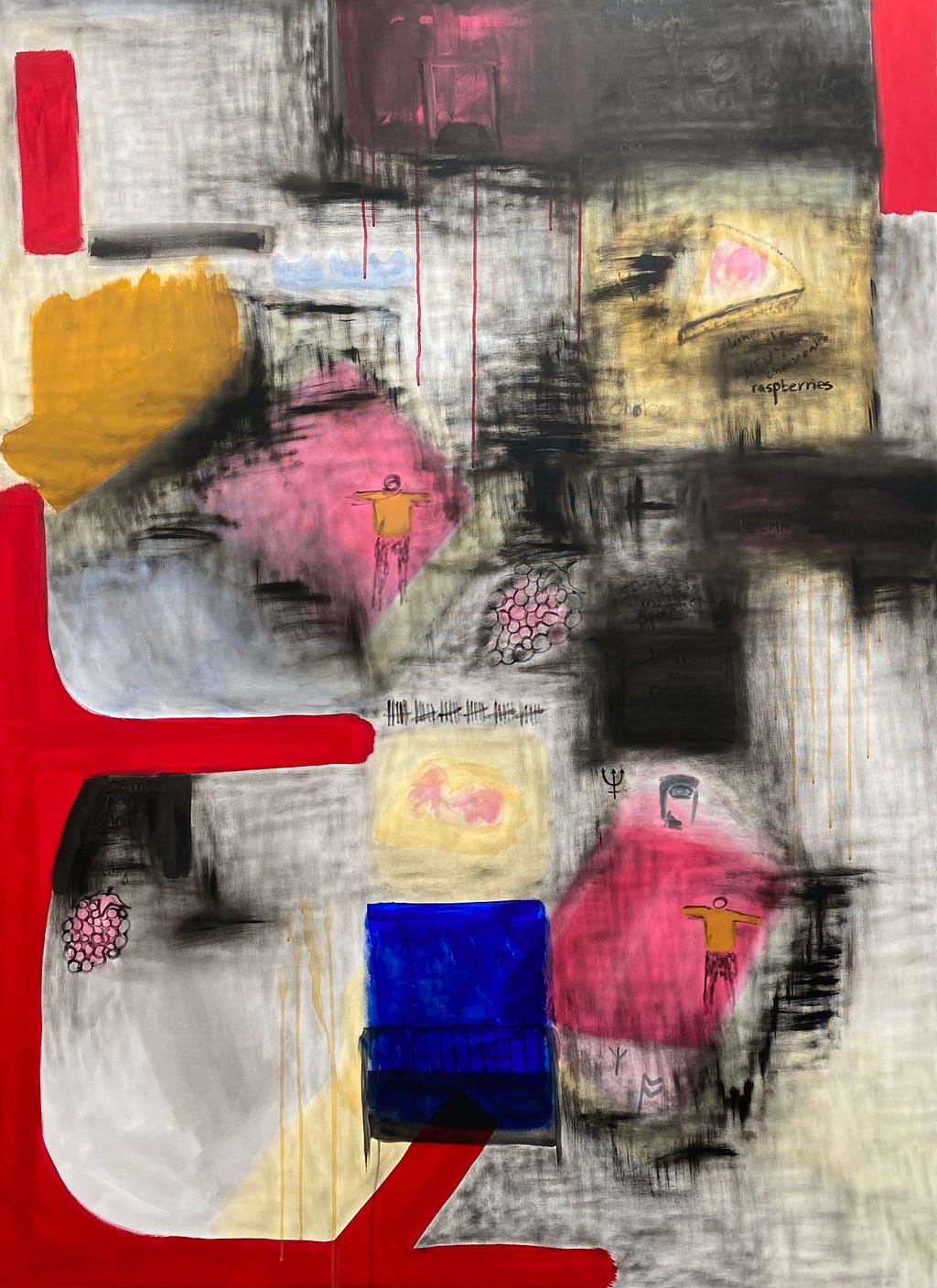Thriving As An Introvert: Olessi Nar On How Introverts Can Thrive & Succeed In A Society That Seems To Favor Extroverts

Leverage your creative side and talents. Many introverts are naturally artistic, and their creativity can lead to fulfilling careers. I’ve seen introverts use their artistic expressions to connect with others and achieve great success.
In a world that often rewards outspokenness and social networking, introverts can sometimes feel sidelined or overlooked. The workplace, educational institutions, and even social settings can often seem engineered to suit the strengths of extroverts, leaving introverts searching for a space to flourish.
However, introversion comes with its own set of unique strengths — deep thinking, the ability to focus, empathy, and keen observational skills — that are invaluable but often underestimated. The question then becomes: how can introverts not only survive but also thrive and succeed in environments that seem skewed towards extroversion? In this interview series, we are talking to introverts, business leaders, psychologists, authors, career coaches, organizational leaders, and other experts in the field who can talk about “How Introverts Can Thrive & Succeed In A Society That Seems To Favor Extroverts”. As part of this series, we had the pleasure of interviewing Olessi Nar.
Olessi Nar is a multidisciplinary artist living in New York. Trained classically as a pianist from the age of seven, Olessi then pursued a Bachelor of Fine Arts degree at Savannah College of Art and Design. She channels her diverse artistic sensibilities into her practice which primarily comprises oil-on-canvas works.
Thank you so much for your time! I know that you are a very busy person. Our readers would love to “get to know you” a bit better. Can you tell us your “Origin Story”? Can you tell us the story of how you grew up?
I grew up in Washington state with immigrant parents who believed that pursuing a career in the arts was not a viable option and wanted me to go into the medical field. In the past, my mother was a teacher. This meant I had a strict schedule of extracurricular activities designed and managed by her, which included a lot of reading. In third grade, as an act of rebelliousness, I started secretly attending local ceramics studio after school, before my Solfeggio lessons. I remember feeling guilty, but the curiosity and magic I felt from working with clay took over. In middle school, I felt like I was older than everyone, so I accelerated through eighth grade and skipped straight to high school, where after a year I got bored again, so my mom told me about Running Start, a dual enrollment program, where if you demonstrate college-level readiness through placement tests, you can take courses in college while earning both high school and college credits simultaneously. That’s where after trying all kinds of classes, which included four pre-med courses, I decided I would have to disappoint my parents, and applied to an art school. Overall, growing up I was an observant, curious, sensitive, and introverted girl, with a very active imagination, always playing by my own rules.
Can you tell us a bit about what you do professionally, and what brought you to this specific career path?
My professional journey is deeply interlaced with my artistic nature. Previously, I applied it to the fashion industry, and during the pandemic, thinking the world as we know it ending, I got the courage to focus on my studio practice full time.
Thank you for all that. Let’s now turn to the main focus of our discussion about Thriving As An Introvert. In order to make sure that we are all on the same page, let’s begin with a simple definition. What does “Introvert” mean to you?
To me, an introvert is someone who draws energy from within rather than from external interactions with people. They do not require anyone around to feel complete or fulfilled. They are comfortable in their own company.
Can you help articulate a few of the challenges that come with being an introvert?
I’m sometimes misunderstood as unfriendly or disinterested, when, in fact, I can be deep in my thoughts, hyperfocused on a project, and miss a couple of phone calls.
I’m sure that being an introvert also gives you certain advantages. Can you tell us a few advantages that introverts have?
Absolutely. Introverts bring unique strengths to the table, including deep thinking, concentration, creativity, heightened empathy, keen observation skills, and self-reliance.
What are the “myths” that you would like to dispel about being an introvert? Can you explain what you mean?
One common myth is that introverts don’t like social situations. In reality, introverts can be outgoing and sociable; they simply recharge through solitude. Also, temperaments are a continuum. We all have a mix of introverted and extroverted traits.
Do you have any role models who are also introverts? What have you learned from them that can help introverts navigate the challenges and benefits of introversion?
There are many accomplished introverts who serve as role models. People like Albert Einstein, Carl Jung, Ayn Rand, Georgia O’Keeffe, Warren Buffett, J.K. Rowling are just a few of my favorite examples. They remind us that introversion is not a limitation but a source of strength that can be harnessed to make a significant impact on the world.

Here is the primary question of our discussion. Based on your experience and success, what are the “Five Things Introverts Need To Thrive & Succeed In A Society That Seems To Favor Extroverts”?
1 . Leverage your creative side and talents. Many introverts are naturally artistic, and their creativity can lead to fulfilling careers. I’ve seen introverts use their artistic expressions to connect with others and achieve great success.
2 . Use your keen observation skills, ability to work independently, and deep thinking to your advantage. These qualities are highly useful in various fields. For example, introverts often excel in roles that require thoughtful analysis.
3 . Prioritize self-care, including solitude, relaxation, and activities that recharge your energy.
4 . Introverts are often sensitive empaths, so it’s important to learn to set boundaries to avoid being overwhelmed and drained.
5 . Let your curiosity be your guide and see where it takes you.
How should an introvert navigate social relationships and networking, activities that are often touted as extroverts’ forte? Do you have any advice for introverts in these areas?
I have always focused on quality over quantity. I never tried to network with everyone, instead built deep, authentic relationships with a select few. Engaging in meaningful conversations holds more value to me.
What are some practical tips you can offer to introverts who want to succeed in the workplace, which is often geared towards extroverted behaviors?
Emphasize your strengths, such as problem-solving and focused work. Recognizing your strong qualities will help you excel in your specific role.
Also, don’t shy away from leadership roles. Many introverts make exceptional leaders due to their empathy and the ability to connect with team members on a deeper level.
Have you noticed any specific ways that being an introvert affects mental health or overall well-being? Any tips for introverts to maintain good mental health?
It is both a ‘blessing’ and a ‘curse’ to be able to feel everything so very deeply. It can take a toll on your mental health if you do not learn to handle this powerful gift. Prioritize emotional boundaries. Remember, it is only a weakness if you are untrained.
In your opinion, are societal views on introversion changing? If so, how do you think this impacts introverts positively or negatively? Can you please explain what you mean?
Introverts were always recognized for their contributions to various fields, but in the media, it was often wrongly portrayed as a weakness. However, now people are starting to realize its power. I even see an amusing trend of long-time extroverts suddenly starting to call themselves introverts as if it’s now the superior trait.
Can you please give us your favorite “Life Lesson Quote”? Can you share how that was relevant to you in your life?
One of my favorite quotes is by Carl Jung: “Who looks outside, dreams; who looks inside, awakes.” This quote resonates with me, as it encapsulates the transformative power of introspection and self-discovery. True awakening and understanding come from within, not from external validation or external achievements. By turning your attention inward, you discover your passions, values, and a deeper sense of purpose. This leads to a more fulfilling and meaningful life. Jung reminds us to prioritize the journey within for genuine growth.
You are a person of great influence. If you could start a movement that would bring the most amount of good to the most amount of people, what would that be? You never know what your idea can trigger. 🙂
I would encourage people to reconnect with their inner selves, tap into the unconscious mind, find their individual path to personal fulfillment, uncover hidden order in apparent chaos, find the rhythm, and see how it can all fit into the larger, ever-evolving, interconnected systems.
How can our readers further follow your work online?
My website: www.olessinar.com
Instagram: @olessinart and @olessinarstudio
Thank you so much for sharing these important insights. We wish you continued success and good health!
Thank you!
Thriving As An Introvert: Olessi Nar On How Introverts Can Thrive & Succeed In A Society That Seems… was originally published in Authority Magazine on Medium, where people are continuing the conversation by highlighting and responding to this story.
